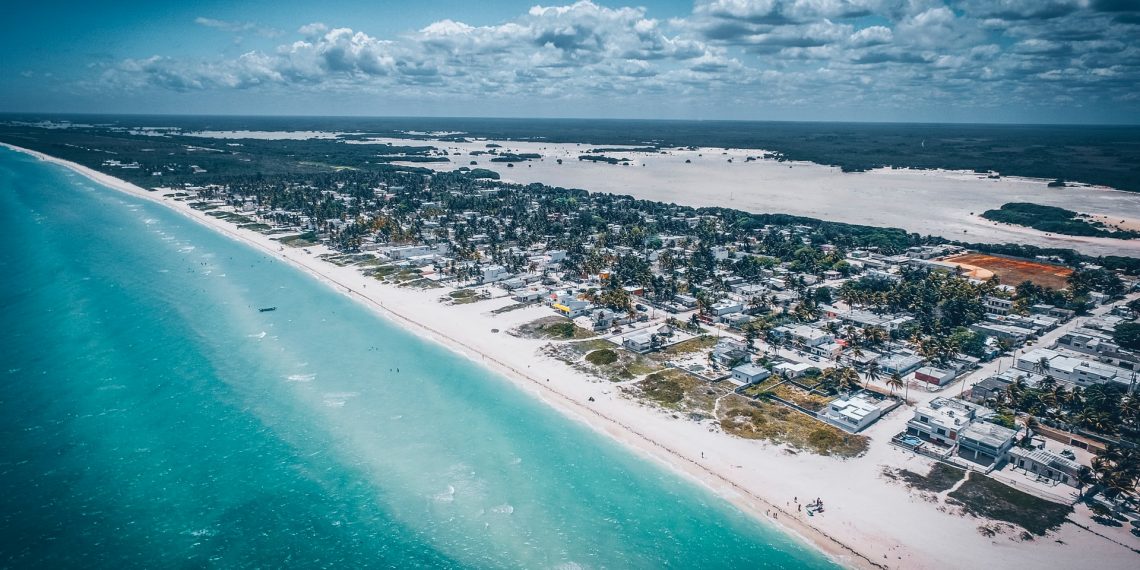For the more than 3 billion people who live near the ocean, coastal ecosystems support jobs, industries and trade, as well as provide food and buffering against storms and other severe natural events. Yet, these vital areas are at risk as rising populations and growing urbanization prompt the significant loss and damage of coastal habitats — including saltmarshes, mangroves, coral reefs and shellfish reefs. These losses reduce coastal resilience, as well as our ability to recover and adapt to climate change and other human-caused threats.
To change this trajectory, a new paper commissioned by the High Level Panel for a Sustainable Ocean Economy proposes a new way forward with four opportunities for action to ensure sustainable and resilient coastal zones.
1. Build Ecosystem Resilience
In addition to underpinning the global ocean economy and offering important social and cultural value, intact coastal ecosystems provide resources like food, energy, minerals and pharmaceuticals while contributing ecosystem services like flood protection and carbon storage. Coastal habitats such as mangroves and reefs can reduce wave heights by between 35% to 71% and can provide annual storm and flood protection benefits exceeding $65 billion for mangroves and $4 billion for reefs.
The last half century has seen significant, and in many cases abrupt and irreversible, changes across the world’s coast lines. Unless there is a change in current practices, the loss of these ecosystems is expected to continue. Protecting these areas should be the first line of defence and involves strengthening regulations supporting community-based management models. In addition to preserving and restoring habitats, adapting and mitigating threats to critical coastal habitats can improve the resilience of ecosystems and communities that rely on them to mitigate climate impacts and development pressures. Measures governments should take to enhance coastal resilience include:
- Strengthening regulations and increasing area-based conservation.
- Increasing the extent and improving the condition of critical coastal habitats through at-scale restoration, ensuring the re-establishment of natural coastal and hydrological processes.
2. Enhance Community Resilience, Equity and Access
Local coastal communities, as well as indigenous peoples and artisanal fishers, often rely on coastal resources to support their livelihoods. As a result, they could face the greatest impacts from climate change and disasters. This interlinked relationship means that local communities are often environmental stewards, using their traditional and local knowledge to increase their resilience and help them manage crises. To successfully implement long-term ocean and coastal management plans, it is critical governments involve these communities in decision-making processes by:
- Recognizing coastal communities’ resource users and stewards, and include the benefits they derive in the valuing and accounting of the ocean economy.
- Incorporating Indigenous and local knowledge in planning and decision-making processes to ensure that these processes are inclusive and equitable.
- Prioritizing poverty reduction and social protection programs while promoting gender equality to build community resilience.
3. Mitigate Impacts of Terrestrial and Extractive Activities on Coastal Ecosystems
Diverting water before it gets to coastal areas can compromise the quantity and quality of surface water and groundwater. This alters the natural supply of sediment to the coast, leading to shoreline erosion and coastal vegetation loss. Asia’s six largest delta systems — Ganges Meghna-Brahmaputra, Indus, Irrawaddy, Mekong, Pearl and Yangtze — are all at risk from changes in flow, including from upstream dams, impoundments and the over-extraction of sand from rivers and coastal areas for concrete, glass and electronic manufacture. This is causing coastal areas to sink and shrink. To achieve coastal resilience, institutions should:
- Integrate ocean and coastal management into surrounding frameworks, such as urban, catchment and land-use planning.
- Manage urban and agricultural water use, as well as upstream catchment diversions and dams, to ensure that freshwater flow and sediment supply is maintained to the coast.
- Introduce or enhance multi-sector dialogues to ensure overlapping agendas and initiatives collaborate.
4. Advance Sustainable, Climate-ready Blue Infrastructure
Utilizing natural infrastructure and building with nature will be key to delivering coastal resilience. By shifting traditional infrastructure (known as “hard” or “grey” and made with concrete or steel) to blue infrastructure (made with natural/semi-natural approaches that mimic natural coastal areas), governments can increase resilience to changing climate conditions, support sustainable development of local communities and minimize the loss of ecosystem services. To ensure this shift, governments should:
- Restore and protect coastal ecosystems. Adapt and upgrade existing coastal infrastructure using nature-based approaches.
- Develop and scale cost-effective sustainable designs while building the skills and capacity of governments to design and maintain sustainable coastal infrastructure.
- Continue to shift institutional biases that favor traditional grey infrastructure while increasing financial instruments to encourage blue or hybrid infrastructure.
By harnessing the power of nature and using blue systems such as reefs, wetlands and mangroves to complement grey infrastructure, these services can be provided at a lower cost with greater benefits. This is especially true for coastal zones where most people live and have businesses.
While the complicated task of governance will differ from country to country, solutions must be backed by innovative science, research and integrated management through inclusive regional coordination and partnerships. The COVID-19 pandemic provides a unique opportunity to build back better and bluer by protecting coastal ecosystems and coastal communities from further harm while supporting and preserving the natural systems that sustain them.
There are affordable, feasible solutions to the threats that coastal ecosystems face that will enhance the resilience of coastal ecosystems, restore coastal integrity and empower a just economic recovery. Achieving this will require all elements of society to actively promote and implement these solutions.



